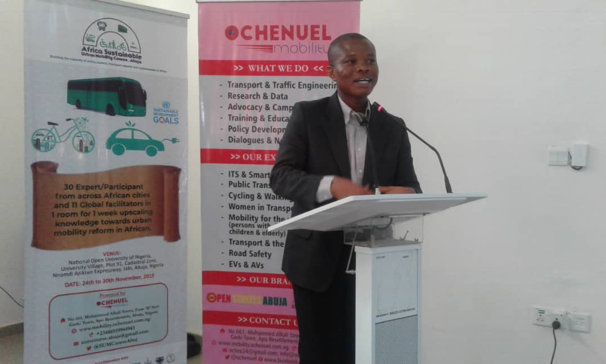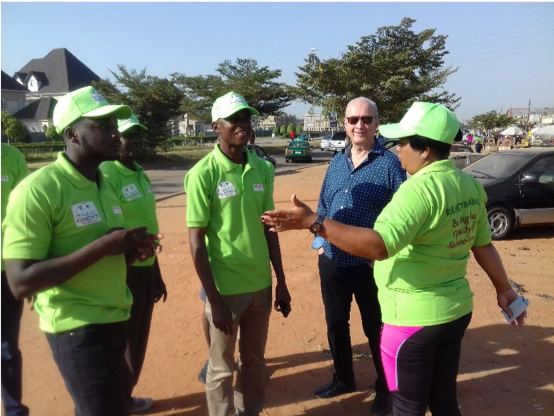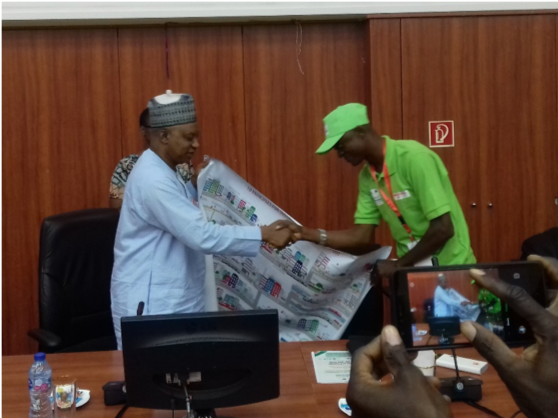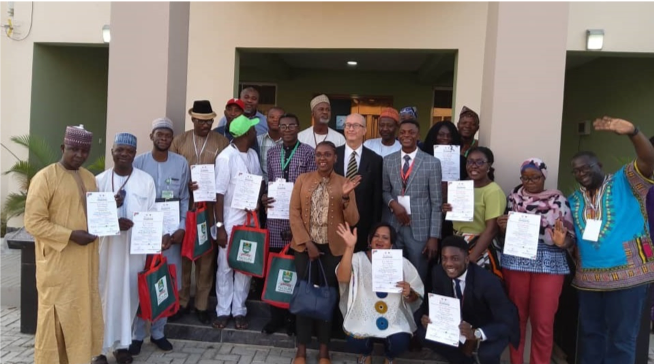UN-Habitat engaged in training policy-makers on sustainable urban mobility in Africa
|
Abuja, Nigeria: The maiden edition of the Africa Sustainable Urban Mobility Course took place from 24th - 30th November 2019 at the campus of the National Open University of Nigeria in Abuja. The course is designed to bring together policy makers, transport experts and the business community across Africa to deliberate on mobility issues facing cities and how solutions could be designed to address them. The training course aims at building the capacity of participants to develop and implement appropriate policies, programs and investments that can help deliver on the SDGs and the New Urban Agenda. Participants from different countries including Ghana, Uganda, Benin and Nigeria took part in the training. In attendance were global facilitators who shared practical skills and experiences with participants.
The training was packaged in several modules with different transport mobility-related topics including the following: Transport and climate change, Road Safety and Data Management, Transport Pricing and Fare Management, Public Transport and Non-Motorized Transportation development, Application on Intelligent Transport Systems (ITS) in Roadway Infrastructure and Traffic, Sustainable Mobility Scenarios, Innovations and Future Vision, among others. Edmund Teko from UN-Habitat’s Urban Pathways project provided trainings on “The BRT revolution: Institutional Issues, funding models and best practices” and “Addressing Informal Transport system (Motorcycles, Tricycles, Scooters) through decarbonisation and reorganisation”. |
“The course is rich, impacting and full of knowledge. Some of the topics delved into my thought on clear-cut safety on the roads as a one-time accident victim; and the use of intelligent systems to prevent accidents from happening” – said one of the participants from Nigeria.
Site visits were organized to the National Automotive Design and Development Council (NADDC) as well as to the Federal Capital Development Authority of Nigeria (FCDA) which is responsible for the provision of infrastructure including road networks with continuous maintenance and expansions. “Transportation is a major enabler of socio-political and economic development and requires continuous innovations to cope with the dynamics of the changing world. Developing appropriate human resources expertise that is adequate to meet the changing needs will be essential for the future” concluded the Executive Secretary of the FCDA during this speech.
The training course is organized by Ochenuel Mobility from Nigeria in collaboration with UN-Habitat through its Urban Pathways project, the Transformative Urban Mobility Initiative (TUMI), the Institute of Transportation and Development Policy (ITDP), and other transport related organizations in Nigeria.
The training course is organized by Ochenuel Mobility from Nigeria in collaboration with UN-Habitat through its Urban Pathways project, the Transformative Urban Mobility Initiative (TUMI), the Institute of Transportation and Development Policy (ITDP), and other transport related organizations in Nigeria.





